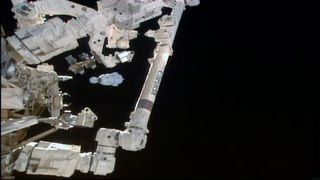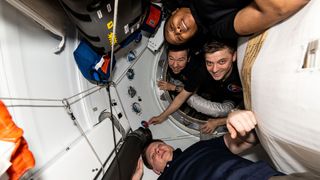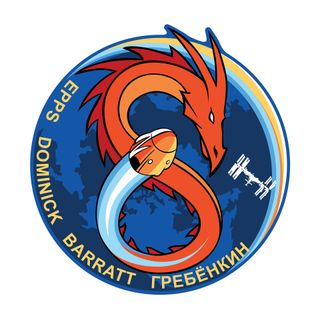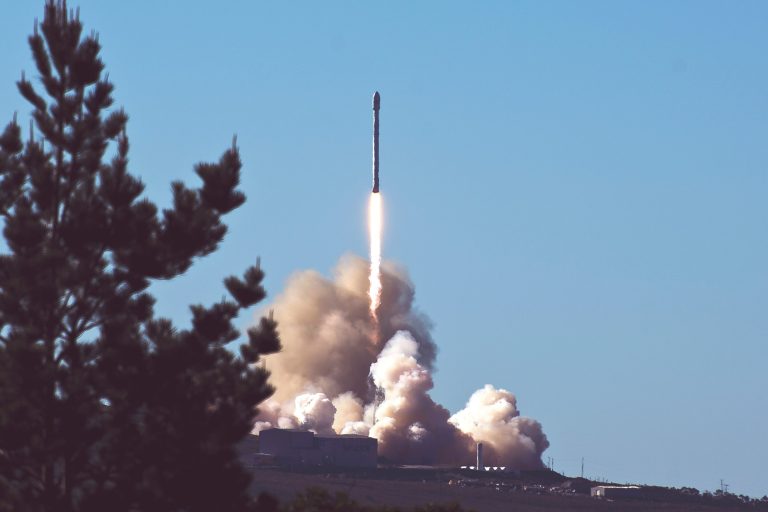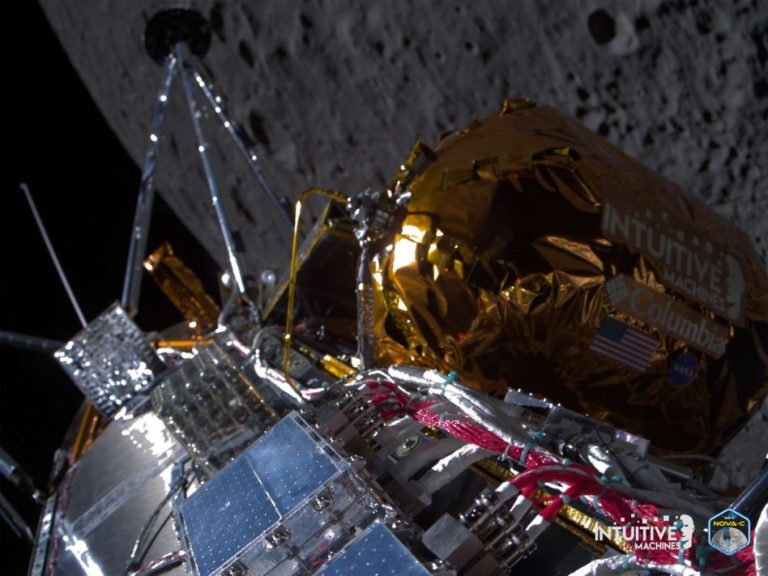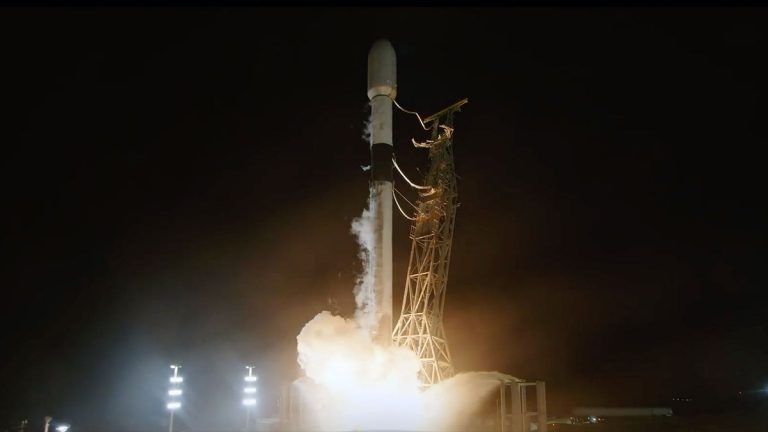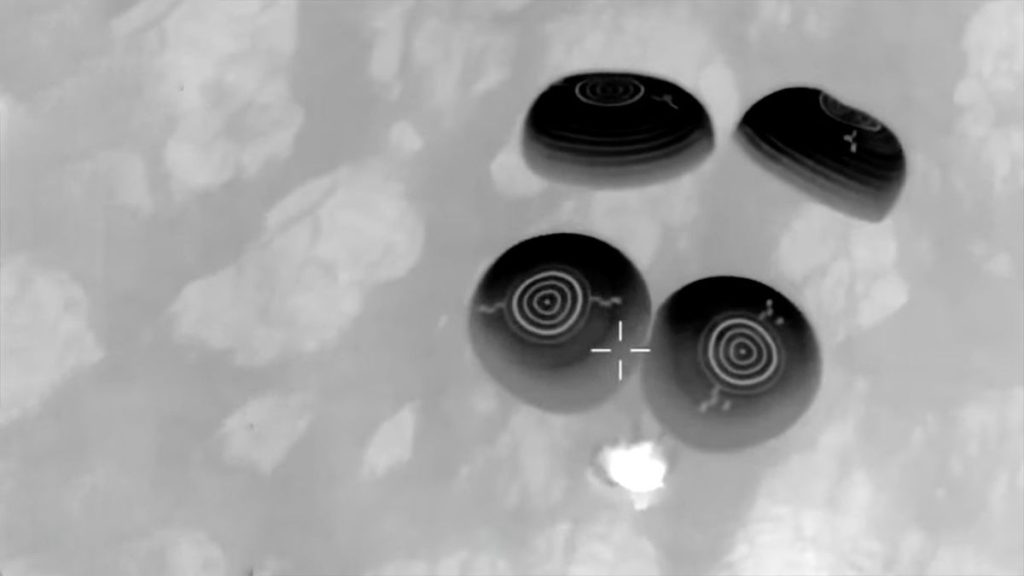
Crew-8 astronauts splash down on SpaceX Dragon Endeavour after weather delays (Image Credit: Space.com)
Four space station crewmates are safely back on Earth after an extended mission and a long wait for the weather to cooperate.
SpaceX Crew-8 astronauts Matthew Dominick, Michael Barratt and Jeanette Epps all with NASA and Roscosmos cosmonaut Alexander Grebenkin splashed down in the Gulf of Mexico off the coast of Pensacola, Florida on Friday (Oct. 25) at 3:29 a.m. EDT (0729 GMT). Their landing after 235 days — including a more than two-week wait on board the International Space Station (ISS) for acceptable conditions — set a record for their spacecraft.
“After spending 232 days docked to the space station, [Crew-8 is] the longest mission Dragon has spent on-orbit to date,” SpaceX noted about its Crew Dragon “Endeavour” in a social media post. The previous longest duration of nearly 200 days was also set by Endeavour, on the Crew-2 mission in 2021.
Originally targeted for an Oct. 8 homecoming after completing an already-extended seven-month science mission aboard the ISS, Dominick, Barratt, Epps and Grebenkin were waved off from departing the station on almost a daily basis as NASA and SpaceX flight controllers continued to watch the weather systems in the Caribbean and Gulf of Mexico for their potential to produce adverse sea state conditions near the Dragon’s splashdown zones.
It was not until Wednesday (Oct. 23) that the crew got the “go” to undock Endeavour from the forward-facing port of the Harmony module at 5:05 p.m EDT (2105 GMT) to begin their journey home. Two days later, they safely reentered Earth’s atmosphere and, slowed by parachutes, dropped into the Gulf.
Related: Meet the SpaceX Crew-8 astronauts
SpaceX boats and ships, including the Dragon recovery vessel “Megan” named after Crew-2 astronaut Megan McArthur, made their quick way to Endeavour to bring the capsule and Crew-8 members aboard. After preliminary medical checks, the crew was set to be flown by helicopter back to NASA’s Kennedy Space Center on Florida’s east coast.
Dominick, Barratt, Epps and Grebenkin launched to the station on March 3 and served on the orbiting laboratory’s 70th, 71st and 72nd expedition crews. During their stay, they helped conduct hundreds of science experiments and attempted two extravehicular activities (EVAs, or spacewalks).
Dominick and Barratt each tried to venture outside the ISS, but problems with their equipment stymied both of their efforts. A “spacesuit comfort” issue called off Dominick’s EVA before it could begin, and a water leak from a umbilical cut short Barratt’s try at just 31 minutes, before he and fellow NASA astronaut Tracy Dyson could even leave the Quest airlock.
Crew-8 also saw the arrival and departure of eight visiting vehicles, including Boeing’s Starliner, which reached the ISS on the Crew Flight Test (CFT) mission with NASA astronauts Butch Wilmore and Suni Williams aboard.
Problems observed with Starliner’s thrusters resulted in the Boeing spacecraft returning to Earth without its crew and the Dragon Endeavour briefly being fitted with two additional makeshift seats had an emergency required that Wilmore and Williams quickly leave the station with Crew-8.
Though the “lifeboat” was never needed, Dominick, Barratt, Epps and Grebenkin’s stay was extended a month after it was decided that Wilmore and Williams would remain on the station and the Crew-9 launch would be delayed similarly.
Crew-8 was Barratt’s third flight. He now has logged almost 447 days off Earth, including serving on ISS Expeditions 19 and 20 in 2009 and launching on space shuttle Discovery’s final flight in 2011.
Dominick, Epps and Grebenkin have each completed their first mission.
A NASA astronaut since 2009, Epps was previously assigned to fly on Russia’s Soyuz MS-09 spacecraft in 2018, but was replaced by her backup for unstated reasons. She was then named to the Starliner-1 crew, Boeing’s first operational flight to the station, but due to delays, she was moved up to Crew-8.
Dominick was a member of NASA’s 2017 astronaut class. During his free time on the ISS, he became an accomplished space photographer. The images he took of aurorae, hurricanes, a total solar eclipse and of spacecraft docked to the station drew millions of views on social media.
Grebenkin has been a cosmonaut since 2018. According to the Registry of Space Travelers maintained by the Association of Space Explorers, he was the 684th person to enter space and 614th to orbit Earth. (His two U.S. rookie crewmates precede him in the list, with Dominick number 682/612 and Epps 683/613. Barratt was the 499th in space and 490th in orbit when he made his first flight in 2009.)
Crew-8 also included SpaceX’s 50th person to fly on Dragon.
Crew-8 was SpaceX’s eight crew rotation flight for NASA, ninth crewed spaceflight in support of the agency and 13th human spaceflight in the company’s history. Crew-8 marked the fifth flight of Endeavour, which earlier launched the Demo-2, Crew-2, Axiom-1 and Crew-6 missions to and from the space station. On Crew-8, Endeavour traveled 100 million miles while completing 3,776 orbits around Earth.
Follow collectSPACE.com on Facebook and on X at @collectSPACE. Copyright 2024 collectSPACE.com. All rights reserved.


